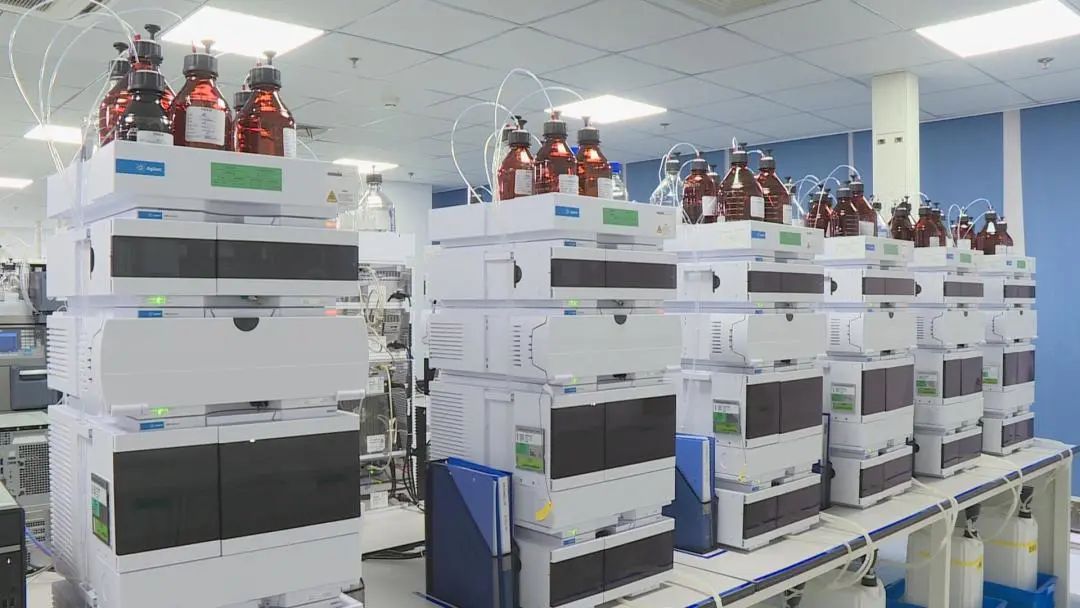Bulk Peptides | Omizzur

Peptides refer to a class of compounds with a molecular structure between amino acids and proteins, and amino acids are the basic functional groups that make up peptides and proteins. Peptides can be as small as dipeptides with only 2 amino acids, or as large as complex long chain or cyclic peptides, playing an important role in regulating cellular physiology and metabolic function.
Peptides are bioactive substances that involve various cellular functions within an organism. Hundreds of peptides have been discovered in living organisms, which are essential participants in completing various complex physiological activities. It involves various fields of the human body, and its importance lies in regulating the physiological functions of various systems and cells in the body.
Peptides are very important for human cell activity, functional activity, and life existence. At present, the application of peptides mainly focuses on the following these aspects:
1.Biomedical
Peptides as drugs have unique advantages: small molecular weight, no immunogenicity, and relatively safe; Small molecules, easy to synthesize, and low cost; The structure is relatively simple, the function is clear, the specificity is strong, and the side effects are low.
Peptide drugs can be divided into peptide vaccines, anti-tumor peptides, antiviral peptides, targeted peptides, cytokine mimic peptides, antibacterial active peptides, antihypertensive and lipid-lowering peptides, etc. based on their functional functions. Popular biopharmaceutical bulk peptides products include exenatide, semaglutide, salmon calcitonin, octreotide, etc.
For example, insulin, the most successful application of peptide in modern medicine, has saved almost the lives of diabetes patients worldwide; The most popular functional health product in Europe and America is growth hormone (hGH), a peptide that can promote growth, development, and anti-aging.

2. Cosmetic Peptides
Small molecule peptides, due to their small molecular weight and unique physiological and physiological characteristics, are more likely to break through the skin barrier and reach the substrate for absorption than skincare products containing large molecules such as nucleic acids or proteins. Cosmetic peptides have anti wrinkle and anti-aging properties, repair the skin, resist aging, and have functions such as whitening and freckle removal, breast enhancement, weight loss, and hair growth. Popular peptides include acetyl hexapeptide-8, acetyl hexapeptide-1, palmitoyl tetrapeptide-7, carnosine, etc.
Name | CAS | Type | Size |
Exenatide | 141758-74-9 | Research-peptide | 100/500mg |
Semaglutide | 910463-68-2 | Research-peptide | 100/500mg |
Salmon calcitonin | 47931-85-1 | Research-peptide | 100/200mg |
Octreotide | 79517-01-4 | Research-peptide | 100/200mg |
Melanotan 2 | 121062-08-6 | Cosmetic peptide | 10/20mg |
GHK Peptide | 49557-75-7 | Cosmetic peptide | 100/500mg |
Glutathione | 70-18-8 | Research-peptide | 100/500mg |
Amyloid β-Protein (1-42) | 107761-42-2 | Research-peptide | 20/50mg |
RGD Peptide | 99896-85-2 | Research-peptide | 50/100mg |
(For more product please get in touch with Omizzur services: [email protected] )
FAQs:
1.What is Solid-Phase Peptide Synthesis?
The solid-phase peptide synthesis method was proposed by Robert Bruce Merrifield in 1963, now known as solid-phase peptide synthesis (SPPS), which is a major breakthrough in peptide chemistry.
Compared with traditional liquid-phase processes, the in-phase method has many advantages. For example, it shortens the production cycle and usually has high yield and purity. It plays an important role in the research process of many peptide drugs.
With the emergence of new condensation methods and new resins, the overall efficiency of solid-state methods has generally improved. In addition, more sensitive techniques for detecting reaction processes have further improved the efficiency of the reaction, and the application of reverse phase HPLC technology for separating complex mixtures is particularly effective when combined with an orthogonal purification strategy such as ion exchange chromatography.
2.What is Peptide Purification and Separation Technology?
Optimizing the production process of peptide drugs is crucial. To ensure that drug production is as economical and repeatable as possible, the final steps in the production process, namely separation and purification, are crucial. In theory, many methods can be used for peptide drug purification. Here are some common methods:
① crystallization method;
② Reverse distribution chromatography;
③ Partition chromatography;
④ Gel filtration chromatography;
⑤ Low pressure hydrophobic chromatography;
⑥ Ion exchange chromatography;
⑦ Reversed phase high-performance liquid chromatography.
Nowadays, compared to most other drugs, peptide drugs are usually separated and purified by chromatography, which is a necessary choice due to the complexity of the products and the strict requirements of relevant management departments for product purity. The most commonly used chromatographic techniques are gel permeation chromatography, low-pressure hydrophobic chromatography, ion exchange chromatography and reverse phase HPLC chromatography.
Chromatographic purification and freeze-drying are both costly steps, which may be the most significant expense for large-scale production of a specific peptide. In addition, there may be certain limitations when conducting large-scale (i.e. ton level) production, especially in the purification and freeze-drying steps using R-HPLC. In this case, it is important to optimize the process to the lowest cost for the final purification step. In order to meet the needs of large-scale production, alternative technologies for final product separation and purification must also be considered.
3.What are the Advantages of Peptide Molecules?
Compared with amino acids and proteins, short peptides generated by the combination of several amino acids have better digestion and absorption performance, and superior nutritional and physiological effects than amino acids. Many of these peptides also have new functions that the original protein or its constituent amino acids do not have.
Peptides often undergo glycosylation, phosphorylation, or acylation to form peptide analogues. Compared with peptides, peptide analogues have the advantages of tolerance to enzymatic hydrolysis, good stability, and high bioavailability, and their application prospects are more extensive. They have become a hot topic in the research and development of new drugs by domestic and foreign companies.
Read Related Articles:
Copyright © 2020 Omizzur Inc | Terms & Conditions | Privacy Notice | Sitemap